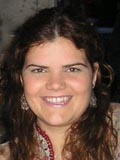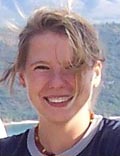|
Intercultural Youth Panels
Project Introduction
Partners
Project Management
Project Introduction
The Intercultural Youth Panels Project has been selected for funding by the European Commission (DG EAC) under the Europe for Citizens programme. The project started on the 1st of February 2009 and will last 10 months.
Issue addressed
In the construction of Europe there is a clear need of further involving citizens in a Cultural Dialogue in order to build an even-closer union where its citizens play a full part in managing diversity. Young citizens play a very important role in this process.
Young people should play an essential role in the process of identifying the strengths and opportunities of living in a culturally diverse area, they should be able to better understand the challenges that their cities are facing and at the same time they should fully participate in the development of local strategies for the promotion of intercultural dialogue and mutual understanding, in order to build a closer Europe with a wider sense of ownership among young citizens.
How does the project address the objectives of the call for proposals?
The EU has realised about the need of bridging the gap between the citizens and the European institutions. The democratic and participatory nature of the European construction could be enhanced by further engaging its citizens, especially young people.
One of the key challenges that the EU is facing today is referred to as "a representation crisis of its institutions". In fact this is a crisis being experienced by the representative bodies of most countries of Europe, a crisis which seems to have as its decisive symptom a slump in election turnouts, expressing both growing dissatisfaction with the inadequacies of the representative system (which distributes decision-taking powers to experts, very much on a technocratic basis), and attachment to the fundamental values of democracy (through the emphasis placed on the need to participate).
This is reflected in the growing interest in developing non-traditional means of participation, the problem arises of the representative nature of democratic institutions in a situation where the merging of several decision-making levels is becoming increasingly urgent, with greater emphasis being laid on recognition of the dimension of citizenship which involves participation and integration in the political process. This process of the merging of several decision –making levels is manifest in relation to the mainstreaming of the urban regeneration agenda to the national/regional/local level within the new programming period. EU Community Strategic Guidelines are now transposed into National Strategic Reference Frameworks and linked Operational Plans which have a regional/local dimension. Consequently there is a need to explore ways for enabling all levels to participate effectively and actively.
Objectives of the project
This project seeks to create 6 "Intercultural Youth Pannels" (IYP's) in the different partner locations. The aim of these pannels would be to discuss the potentials and difficulties of belonging to a culturally diverse community. These groups would have to identify what are the opportunities that cultural diversity present in their areas in the development of a sustainable and inclusive city.
To reach the above overall aim, the proposal has the following specific objectives:
* Establish local partnerships in partner locations engaging young citizens, professionals and local politicians around the issue of cultural diversity and intercultural dialogue. This will engage young citizens from 6 cities and 3 different Member countries in a "Intercultural Youth Pannel" (IYP). Each IYP will have a cross-section composition (gender-wise and culture-wise). There will be a minimum of 50 young people directly participating in these Forums. These groups will be established upon local partnerships with youth associations/schools and they will participate in the pannel together with the local politicians and the professionals.
*All the IYPs will undertake a series of actions at the local level. A coordination team will be created in every pannel in order to manage and organise the different activities.
- Create an awareness-raising campaign on the issue of the importance of respect for cultural and linguistic diversity and intercultural dialogue.
- Create a programme of activities for the IYPTs (discussion forums, blogs, events; exhibitions; workshops; newletters etc).
- Creation of a local memorandum on the challenges and issues facing Europe today regarding cultural diversity and intercultural dialogue. All local memorandums will be put in common and a Final Memorandum will be produced representing the general recommendations from all the partners.
- Make presentations of the memorandum to the local/regional and European authorities.
*At the transnational level every pannel will:
- Participate in online transnational discussion forums
- Participate in a transnational information, capacity-building & exchange workshop.
- Make presentations of findings /recommendations at EU level to the European Commission and the EP Intergroup for Urban Policy and Housing.
Budget
The Intercultural Youth Panels project counts on a budget of 192.870 €. The EC has funded 75% of the total and the rest is co-financed by partners.
Partners
- City of Torino, IT
- Region of Andalucía, SP
- City of Lecce, IT
- CEPS Barcelona, SP
- Forumul Cetatenesc pentru Actiune Sociala si Educatie Civica., RO
- District of Charlois, Rotterdam, Netherlands
Project Management
Co-ordination of the project

Tamara Hodas Garcia (project coordinator)
E-mail: thodasgarcia@qec-eran.org
Tel : +32 (0) 2 524 45 45
Fax : +32 (0) 2 524 44 31

Karolina Rachwal (coordination support)
E-mail: krachwal@qec-eran.org
Tel: +32 (0) 2 524 45 45
Fax: +32 (0) 2 524 44 31
|



